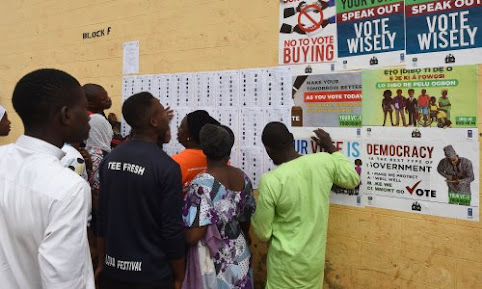By Chiedu Uche Okoye
The rashes of successful military takeovers in some African countries signpost the failure of democracy on the African continent. Before the Caucasoid race brought democracy to Africa, the many different kingdoms in Africa had their pre-colonial types of government.
Then, we had the Dahomey kingdom, Benin kingdom, Oyo Empire, and others. Their respective pre-colonial types of government throve, ensuring and guaranteeing orderly succession of pre-colonial governments in Africa. The evolutionary trends of our pre-colonial governments were stymied by the white people’s introduction of democracy to the African people(s), however.Democracy, which originated in Athens, Greece, is one of the types
of government in our today’s world. In addition to democracy, we have
plutocracy, gerontocracy, aristocracy, mobocracy, and others. Democracy is said
to be the best type of government owing to its peculiar and sterling features.
For example, the concept of the rule of law, which is enshrined in democracy,
stipulates that everybody is equal before the law.
However, before countries in Africa started practising democracy,
they were under colonial rule for a great length of time. White people from
France, Italy, Germany, Belgium, Britain, and Portugal carved up Africa into
colonies and subjected the African peoples to colonial rule. So we had the French,
German, Italian, British, and Portuguese colonies, then.
But such African freedom fighters as Nnamdi Azikiwe, Obafemi
Awolowo, Leopold Sedar Senghor, Kwame Nkrumah, Agostinho Neto, Kenneth Kaunda,
Julius Nyerere, Jomo Kenyetta, and Robert Mugabe fought fiercely for the
political emancipation of their countries. So in the late 1960s, African
countries started gaining political independence from their colonial masters.
Ghana became a politically independent country in 1957 while Nigeria achieved
self-rule on October 1, 1960.
However, many African political leaders practised egregious
variants of democracy. They practised democracy in the breach, which resulted
in the political implosion of those countries. Sudan and Ethiopia
disintegrated, with other countries emerging from them. Africa’s political
leaders’ promotion of ethnic chauvinism and practice of religious bigotry,
which negate secularism that characterized democracy, were at the roots of the
failure of democracy in African countries. Corrupt political leadership,
indisputably, contributed significantly to the failure of democracy in most
African countries, too.
In Nigeria, the civilian government of Alhaji Tafawa Balewa was overthrown six
years after we had gained political independence. The factors of ethnicity,
religious bigotry, and corrupt political leadership caused the military to oust
Alhaji Tafawa Balewa from power. Later, there was a counter-coup, which
snowballed into the Nigeria-Biafra fratricidal civil war.
Until 1999, Nigeria, the so-called giant of Africa, had witnessed
military interregnums at different periods in her chequered history. The
military ruled our country between 1966 and 1979, with Yakubu Gowon, Murtala
Mohammed, and Olusegun Obasanjo taking turns to rule Nigeria. And between 1983
and 1998, save the brief period when we had a civilian government, the soldiers
ruled Nigeria.
Although the military rulers we had in the past branded their
military regimes corrective governments, they fared worse than the civilian
governments that preceded them. The military rulers would put our country’s
constitution into abeyance, and rule with decrees. So while Ibrahim Babangida
institutionalised corruption in Nigeria, the vampiric Sani Abacha, who had
sanguinary proclivity, took much delight in killing democracy activists.
Before Sani Abacha and Ibrahim Babangida ruled Nigeria as military
heads of state, the rambunctious and ramrod straight Muhammadu Buhari instilled
fear into Nigerians by executing his draconian decrees. He infamously made laws,
which had retroactive effects, resulting in the death of three drug couriers.
At the time the three drug traffickers committed the drug offence, death
sentence was not the penalty for the offence. But we are not unconscious
of the fact that laws ought to be forward-looking, and not back-ward looking.
And Muhammadu Buhari trampled on our fundamental human rights
while trying to reform Nigerians. Nigerians who violated traffic rules and
failed to stand in queue during official events were dehumanised. So the saying
that the worst civilian government is better than the most benevolent military
regime is made true in the Nigerian case, then.
Happily, now, Nigeria has been enjoying uninterrupted civilian
governance since 1999 in spite of the inherent and deeply-embedded flaws in our
variant of democratic practice and culture. Here, in Nigeria, sovereignty does
not belong to the people; and, election results are not the true reflections of
the wishes and will of the people. In the face of all this, our democracy
has remained resilient, though inchoate, with one civilian government
succeeding another civilian government.
But now, there is recrudescence of military takeovers in some
African countries, with Mali, Burkina Faso, Guinea, Chad, Niger republic, and
Gabon being ruled by military juntas. The rashes of military coups that took
place in some African countries are symptomatic of the political leadership
malaise, which has afflicted Africa. The stark fact is that most African
countries have not got it right, politically.
The reason for the failure of democracy in Africa is not
far-fetched. African political leaders perceive their occupation of the most
exalted political posts in their respective countries as opportunities to amass
stupendous wealth at the expense of their long-suffering fellow citizens. Being
megalomaniacs, they trample on the fundamental human rights of the people and
amend their countries’ constitutions to elongate their stay in office. Their
attempts to perpetuate themselves in offices by transforming democratic
governments to monarchies; and their political maladministration of their
countries predispose them to becoming victims of military takeovers.
The failure of democracy in Africa is linked to our political
leaders’ practice of representative government in the breach. African political
leaders should play the roles of a servant-leader in their leadership of their
respective countries. And they should subsume their self-interests beneath the
collective good of the people. Their doing the aforementioned is the anti-dote
to the wave of coup d’etat sweeping through the African continent.
*Okoye, a poet, wrote from Uruowulu-Obosi, Anambra State. (08062220654)


No comments:
Post a Comment